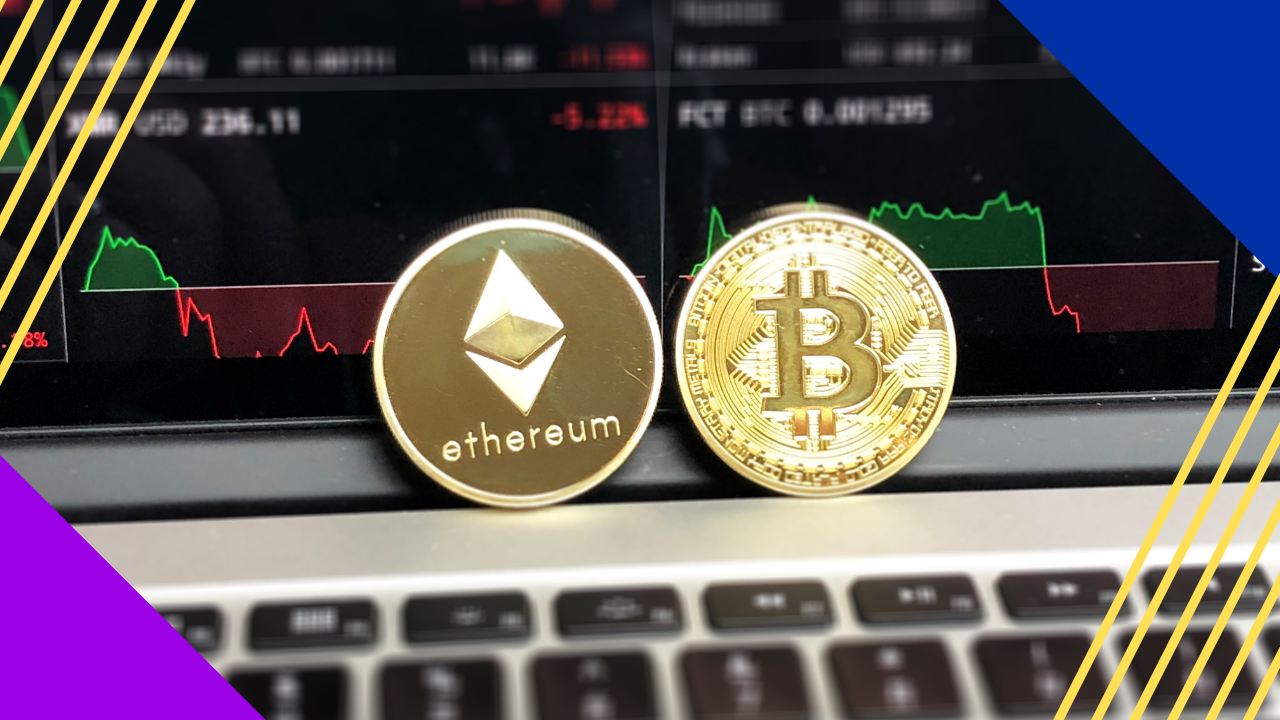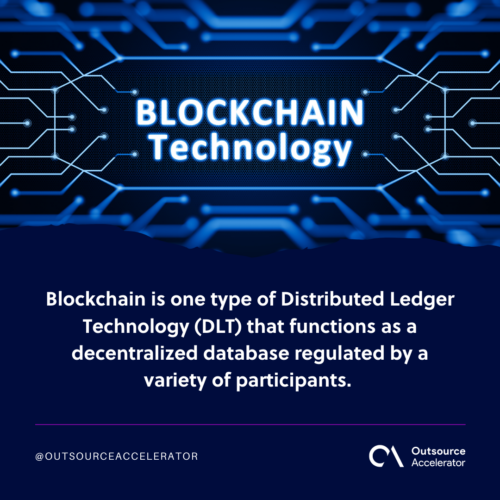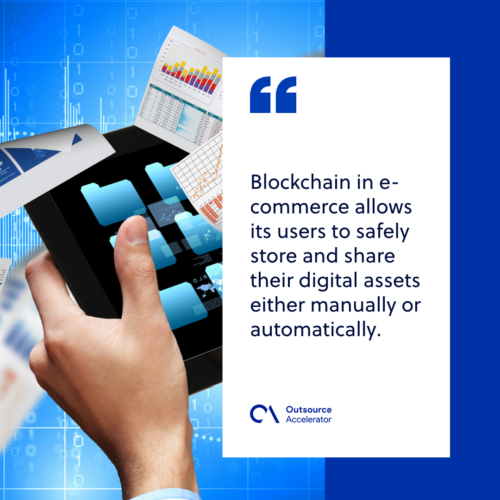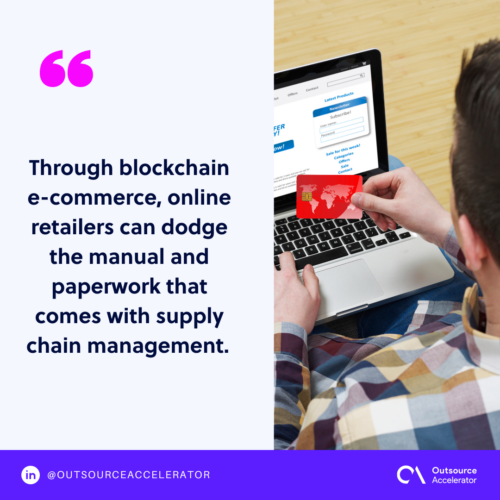How blockchain e-commerce is empowering today’s businesses

Technological innovations are continuously transforming today’s business landscapes. Blockchain technology is indeed among the latest tech advancements gaining traction in the global economy. At present, blockchain serves as a significant influence in revolutionizing the e-commerce sector.
For forward-thinking business leaders, blockchain e-commerce presents great potential in the digital world. This is especially true for fostering secure record-keeping and financial transactions through cryptocurrency.
Blockchain e-commerce, however, is more than just the use of cryptocurrency. We’ll walk you through the fundamentals of blockchain technology and, more so, how it is continuously transforming the e-commerce industry.
How does blockchain work?
Blockchain is one type of Distributed Ledger Technology (DLT) that functions as a decentralized database regulated by a variety of participants.
It refers to a system of recording information in which changing, cheating, or hacking data within the system is hardly possible. Transactions that are being recorded in blockchain utilize an immutable cryptographic signature that is called a “hash.”
In general, blockchain operates as a digital ledger that involves a series of transactions. These transactions are duplicated and dispersed around the whole network of computer systems on the blockchain.
Every block in the chain consists of different transactions, and every recorded new transaction is added to each participant’s ledger.
It can be easily detected if one block in a single chain is changed. As for hackers that are aiming to corrupt a blockchain system, they will be required to alter every single block until all distributed versions of the chain are changed.
Bitcoin is one of the most popular examples of cryptocurrency operating on the blockchain. Blockchain was created as the backbone of Bitcoin.
Unlike the SQL system, wherein someone is managing all entries and transactions, the blockchain system is handled by each individual who uses it. On top of that, bitcoins cannot be hacked, spent twice, or faked.
Other examples of cryptocurrencies are Ethereum, Binance Coin, Lite Coin, and Cardano.

What is blockchain e-commerce?
Blockchain enables more secure and faster financial transactions for both e-commerce businesses and customers.
Blockchain in e-commerce allows its users to safely store and share their digital assets either manually or automatically. Apart from payment processing, blockchain e-commerce also enables other user activities like customer care, product searches, and purchases.
Bitcoin and Ethereum are two of the most commonly used blockchain technologies in the e-commerce sector.
Ethereum provides a platform for e-commerce businesses that want to be in charge of their blockchain. Bitcoin, on the other hand, is mainly used by consumers to make online purchases on e-commerce sites that accept Bitcoin payments.

4 ways blockchain is transforming the e-commerce industry
Blockchain e-commerce, over the recent years, has been steadily making its way into the mainstream. More so, it has proven to be advantageous for both consumers and retailers.
Here are four ways blockchain is revolutionizing the e-commerce field:
Better access to global customers
Online bank-to-bank transactions, especially global transactions, can often be limited. Plus, customers in developing countries sometimes lack access to better-quality banking services.
Blockchain, on the other hand, lets global consumers bypass banking as the middleman for online transactions. It also gives them access to wider options for global retailers and brands.
Cost-saving
Online retailers won’t have to invest more in buying and maintaining different tools and systems to support their e-commerce operations. Through blockchain technology, retailers can perform various services like inventory management, payment processing, and product descriptions.
As for payment transactions, it helps consumers avoid banking fees from fund transfers or fees charged by credit card companies for payment processing.
Personal offers and referral and loyalty programs
It is also easier for e-commerce retailers to give redeemable reward points once they hit a certain spending amount. Through blockchain, online retailers can issue reward tokens that customers can redeem across different e-commerce sites.
Blockchain can also be used for loyalty programs and personalized offers to help brands attract more customers.
More refined supply chain management
Through blockchain e-commerce, online retailers can dodge the manual and paperwork that comes with supply chain management. Supply chains allow them to monitor their supply shipments and when they should arrive.
It also helps store operators to determine which products certain vendors are supplying them. This promotes transparency throughout the supply chain processes.

The blockchain e-commerce revolution
A lot of consumers in today’s modern world opt to do online shopping rather than going on a trip to the actual stores. Blockchain supports e-commerce businesses’ online payments, sales, and more.
While blockchain e-commerce may be a relatively new concept, its rise in popularity along with fintech and cryptocurrency can be attributed greatly to the benefits it offers online merchants and customers.







 Independent
Independent




